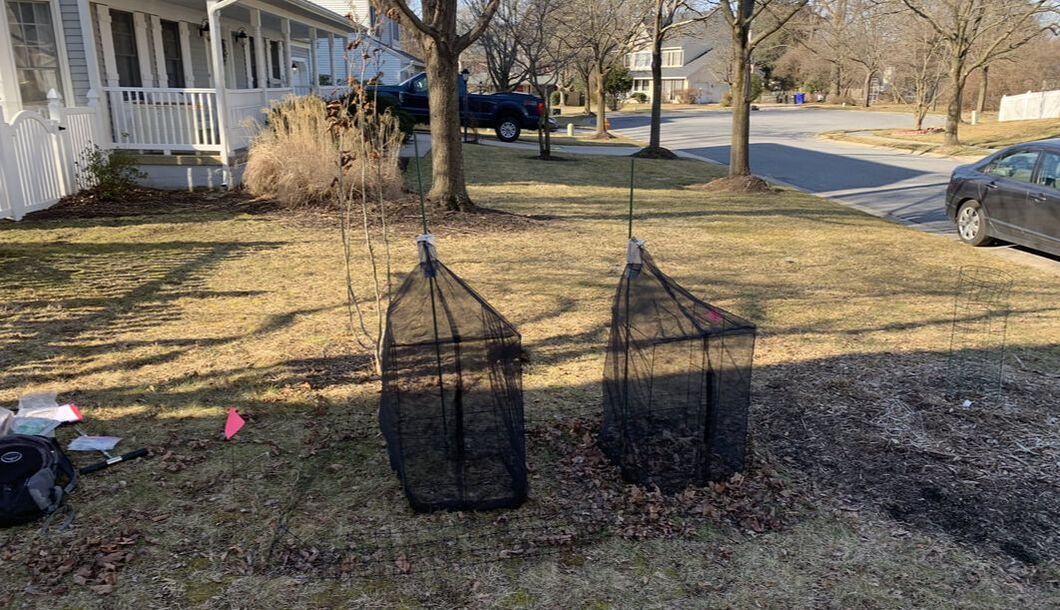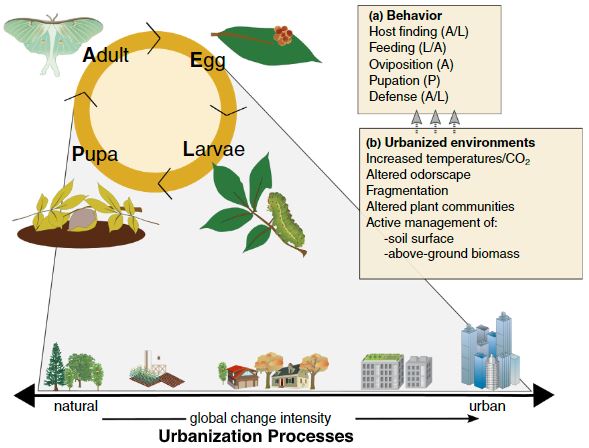|
Leaf litter management in suburban yards
Very little is known about insect life cycles in urban and suburban settings. Leaf litter management, if homeowners rake and remove leaves each fall, could affect overwintering habitat availability and nutrient inputs. I worked with labmate Max Ferlauto to test how legacy leaf litter management (if leaves have historically been removed) and current year manipulation influence insect emergence and nutrient cycling. |
We used the standardized "Tea Bag decomposition" methodology to measure decomposition. Red and green tea bags were buried for ~90 days in the four treatment combinations (legacy leave and remove x current year leave and remove)
We found that decomposition in yards is affected by the legacy treatments - if leaf litter has historically been removed - but not by a single year manipulation. You can read the full paper, published in Plants, People, Planet.
We found that decomposition in yards is affected by the legacy treatments - if leaf litter has historically been removed - but not by a single year manipulation. You can read the full paper, published in Plants, People, Planet.
|
Understanding insect life cycle transitions in urban areas
Insects require many habitats and resources throughout their life cycles. Managed and urbanized environments have the potential to alter the available resources in many distinct ways. In this paper, we reviewed the existing research on herbivore insect life cycles in urbanized environments. You can read the full paper in Current Opinions in Insect Science. |


